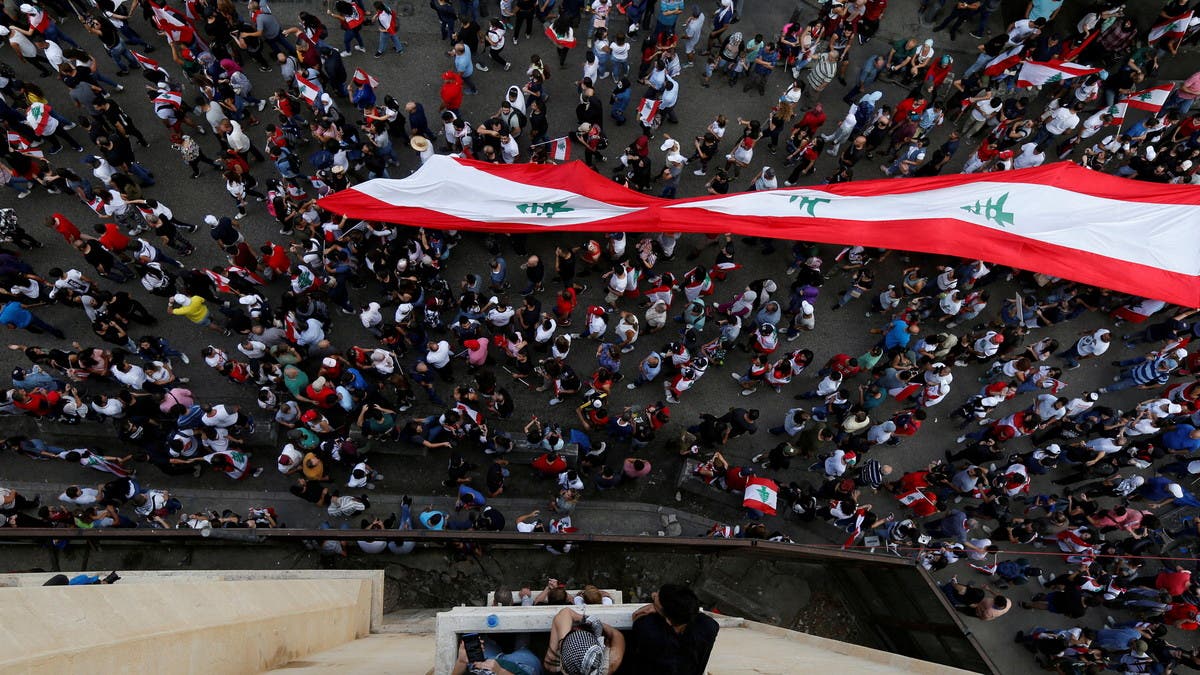Lebanon’s new parliamentary line-up is a “double-edged sword,” an economist told Al Arabiya English on Wednesday, raising concerns about the ability MPs will have to initiate real change and help the country finally exit the long-running economic and financial crisis.
For the latest headlines, follow our Google News channel online or via the app.
“We look at the new parliamentary lineup as a double-edged sword. On one hand, the rise in pro-western and pro-GCC forces, in addition to “change forces,” could entail positive elements for the openness of the country to the global financial community and could have positive effects on securing potential much-needed international aid,” said Marwan Barakat, Chief Economist and Head of Research at Bank Audi.
“On the other hand, the parliamentary elections lead to a much-fragmented parliament, with no one being able to call the majority, and with the presence of a large number of blocks and independent MPs,” he explained
Divide and rule
The results of Lebanon’s parliamentary elections were released by the country’s interior ministry on Tuesday. While the Iran-backed Hezbollah group and its allies lost their parliamentary majority – some to independent candidates – many MPs from traditional political parties remained, and so did two lawmakers charged in connection with the 2020 Beirut Port blast.
Independent candidates won at least 13 seats in the new parliament, making unprecedented gains.
The reformists, who campaigned on the legacy of a 2019 anti-establishment protest movement, could yet obtain the support of several other independent and non-aligned lawmakers in the 128-member assembly. Twelve of the thirteen reformist candidates are newcomers. They campaigned against Lebanon’s ruling elite, composed of sectarian parties that have ruled the country since the end of the civil war in 1990.
Many Lebanese blame the entrenched political elite for the country’s economic collapse in 2019 and for failing to take measures to stop it.
“While such a new reality is good for checks and controls, it yet also means that it would be difficult to have agreement on major political milestones and legislation,” said Barakat, highlighting that this puts the International Monetary Fund’s (IMF) plan in jeopardy.
“There is a risk that the prior actions required by the IMF for a final agreement with Lebanon on an extended fund facility would not be easily ratified by such a fragmented parliament,” he noted, adding that the possibility of failing to disagree on Cabinet formation and presidential elections exists. “[This] suggests possible fears that Lebanon could enter into a harmful vacuum at the level of its political and executive leadership.”
In April, Lebanon reached a draft agreement with the IMF for a four-year $3 billion bailout, the final approval of which was conditional on the implementation of eight main requirements.
Seen as crucial for Lebanon to emerge from the devastating years-long financial crisis, a lot of hope is riding on the IMF program to initiate change in the country.
“It is very important to reduce differences and divergences on key issues [in parliament], foster coordination and convergence and search for common grounds among the various blocks and parties represented in Parliament,” he said.
Unclear economic outlook
Bank Audi, a major financial group in Lebanon, released its quarterly report last week, predicting a highly uncertain economic outlook this year.
“2022 started with a number of noticeable developments in the country, namely the realization of a staff-level agreement with the IMF, the end of the diplomatic crisis with GCC countries and the countdown for critical parliamentary and presidential elections,” Barakat said, when asked about the report’s findings.
“Still, the real economy’s outlook for 2022 is highly uncertain and is contingent upon the upcoming political milestones, the realization of a final agreement with the IMF, the launch of structural reforms and the securing of international assistance from abroad,” the chief economist said, adding that real growth could deviate between a contraction of -6.5 percent, as projected by the World Bank for 2022, to an expansion of +2.5 percent as projected by the Institute of International Finance (IIF).
Barakat told Al Arabiya English that the IMF plan was necessary because it was the “only way out for Lebanon to exit its lingering economic and financial crisis.”
With Agencies
Read more:
Lebanon’s Hezbollah, allies lose parliament majority: Results
MPs charged over Beirut blast re-elected, troubling families of victims
Lebanon jobless rate almost triples since crisis: Survey

 World3 years ago
World3 years ago
 World3 years ago
World3 years ago
 Business12 months ago
Business12 months ago
 Entertainment7 years ago
Entertainment7 years ago
 World7 years ago
World7 years ago
 Entertainment7 years ago
Entertainment7 years ago






